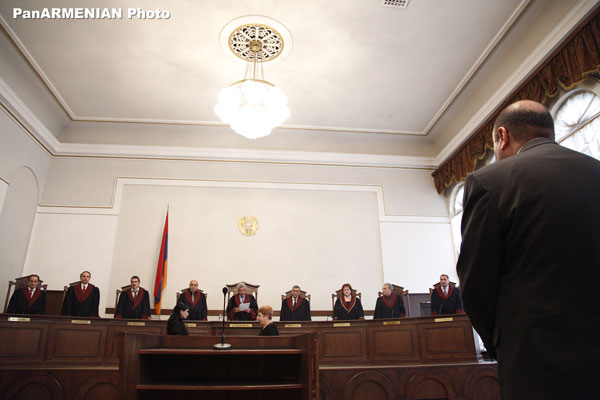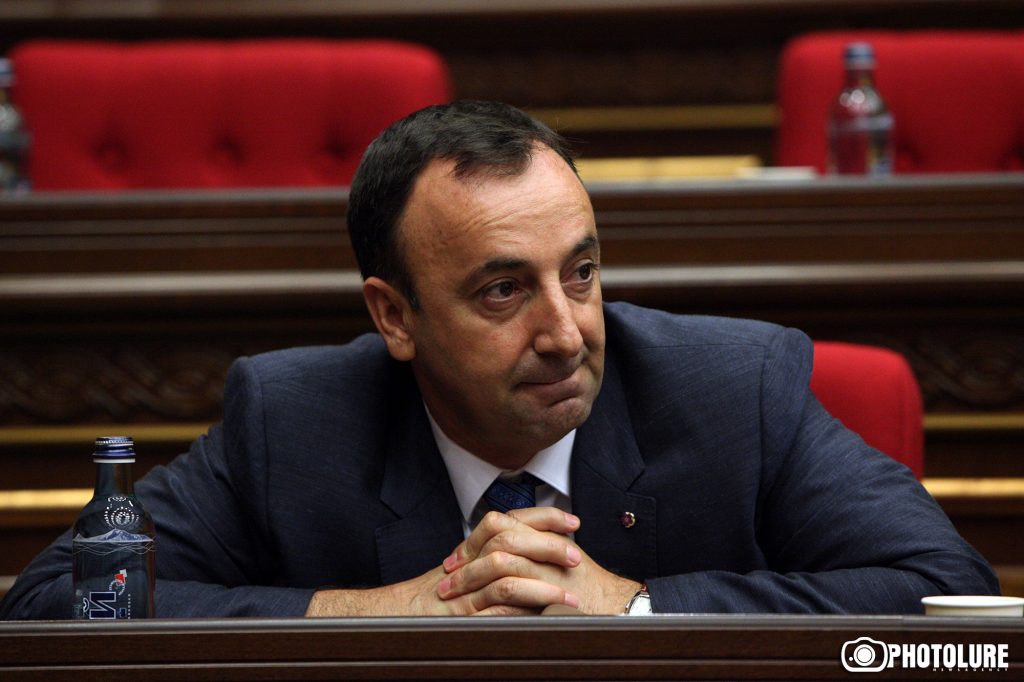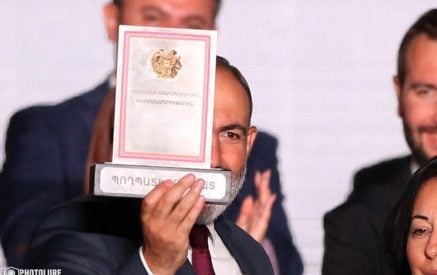“We asked a systemic question, and they didn’t answer our question at all,” R. Hovhannisyan’s representative, Karen Mezhlumyan, an attorney at law, gave this assessment of the ruling on the petitions of R. Hovhannisyan and A. Ghukasyan, candidates for president, challenging the no. 62- Ա decision of the Central Election Commission (CEC) on the election of the President of the Republic of Armenia made on February 25, 2013, during a conversation with www.aravot.am in the Constitutional Court. The Constitutional Court has made public the full text of the ruling, in which it informs that the examination of the case shows that the petitioners had disregarded the provisions of the Administrative Code of the Republic of Armenia hadn’t been followed properly or hadn’t been used in accordance with the process and terms provided for by the law. The decision also stipulates that the Constitutional Court could not perform the duties of the political forces participating in the electoral processes within 10 days. It is reminded that the petitioner didn’t act in accordance with the terms provided for by the Electoral Code of the Republic of Armenia. According to the Constitutional Court, that party wants to make an impression on the public with unlawful or practically undoable motions as if the Constitutional Court could have done, but didn’t wish to do what they had to do on time and within the scope of the powers granted them by the law and to file a petition based on legal arguments proving that they were right. The Constitutional Court points out a set of grounds, which it took into account while
denying R. Hovhannisyan’s petition. In particular, the Constitutional Court’s ruling states that the petitioner made notes only in two commissions’ registration books, that the poll-watchers of political forces found the signed records reliable and unchallengeable, that R. Hovhannisyan had 1009 poll-watchers, whereas the latter have filed only one petition, only one person expressed a dissenting opinion, that the petitioners haven’t presented any legal argument important for proving R. Hovhannisyan’s victory in the court etc. In response to the counterarguments of the Constitutional Court, K. Mezhlumyan stated: “In particular, we raised the issue of large numbers. I.e. the fact that at some polling places, there was 100 percent turnout. At 576 polling places, Serzh Sargsyan won by 85 percent and more, and the turnout at those polling places was 80%-100%. We say: ‘Brother, such a thing can happen, only if there is double voting.’ It is such a violation, which cannot be noticed. I.e. the same persons vote in multiple places. And it cannot be discovered. One should have phenomenal memory to notice that the given person has voted twice. Basically, you see 100% turnout, but you haven’t seen any violation. What can you do? They say: ‘You should have made a request for recalculation the next day.’ However, you don’t see any grounds for recalculation; it seems everything’s normal.” In response to our question what the Constitutional Court could have done that it hadn’t done, Mr. Mezhlumyan said: “Probably one thing; check the data of those who had participated in the vote against the National Security Service (NSS) database. Who enters and leaves the Republic of Armenia; the database shows them with their addresses. If the database was used, for example, in Mkhchyan, a half of which is empty, but 80% of those included in the voter registration lists participated in the vote, it would be clear whether these persons who voted are present or not. If we were able to use that database, it would be clear how one can achieve that 100%. We raised that issue, and they evaded it.” With regard to making a request to recalculate, K. Mezhlumyan stated: “It encourages us to make requests for recalculation at all polling places during the next election, regardless of what we have revealed. There are roughly 2000 polling places, shall we make 2000 requests for recalculation? This means that as many requests will be considered by polling place commissions, as many petitions will be filed in the administrative court. Can that one court examine 2000 cases on their merits in five days? They want to create a legal chaos. We will do that the next time, but it will basically not solve the problem.”
Tatev HARUTYUNYAN

























































